
Top 5 Plumbing Problems in Commercial Buildings and How to Prevent Them
Maintaining a commercial building comes with its own set of challenges, especially when it comes to plumbing. A minor issue can quickly escalate, leading to costly repairs and operational disruptions.
Addressing these concerns proactively not only saves money but ensures the building remains safe and functional for tenants and employees.
Here are the top five commercial plumbing problems and practical steps to prevent them.
1. Blocked soakwells and drainage issues
Blocked soakwells and drainage systems are a common problem in commercial properties, particularly those with larger parking areas or landscaping.
These blockages often occur due to the accumulation of debris, such as leaves, dirt, and sediment, which can restrict water flow. Particularly in winter when there is heavy rain, the increased water flow can cause debris to collect in drainage systems.
If left unaddressed, clogged drainage systems can lead to flooding, property damage, and disruptions to business operations.
Signs of a blocked soakwell/drainage issue
- Water pooling around the base of the building or in landscaped areas.
- Slow drainage during heavy rainfall or after water use.
- Unpleasant odours coming from outdoor drainage points.
- Overflowing gutters or downpipes during rain.
- Soil erosion or sinkholes forming near soakwells.
How to prevent blocked soakwells and drainage issues
- Routine maintenance: It is always better to be proactive instead of reactive. Work with a professional plumbing partner to schedule regular inspections and cleaning of soakwells and drains to remove debris before it builds up.
- Install grates and filters: Use grates and filters to prevent larger debris from entering drainage systems.
- Monitor surrounding landscaping: Garden maintenance is also connected to plumbing maintenance. Keeping trees and shrubs well-trimmed helps minimise the amount of leaves and natural debris that can accumulate in gutters and drainage areas.
- Invest in professional inspections: We recommend a professional inspection at least once a year to catch any potential plumbing issues and make repairs if necessary. Professional plumbers can also assess the integrity of the drainage system, ensuring it can handle high volumes of water during storms.
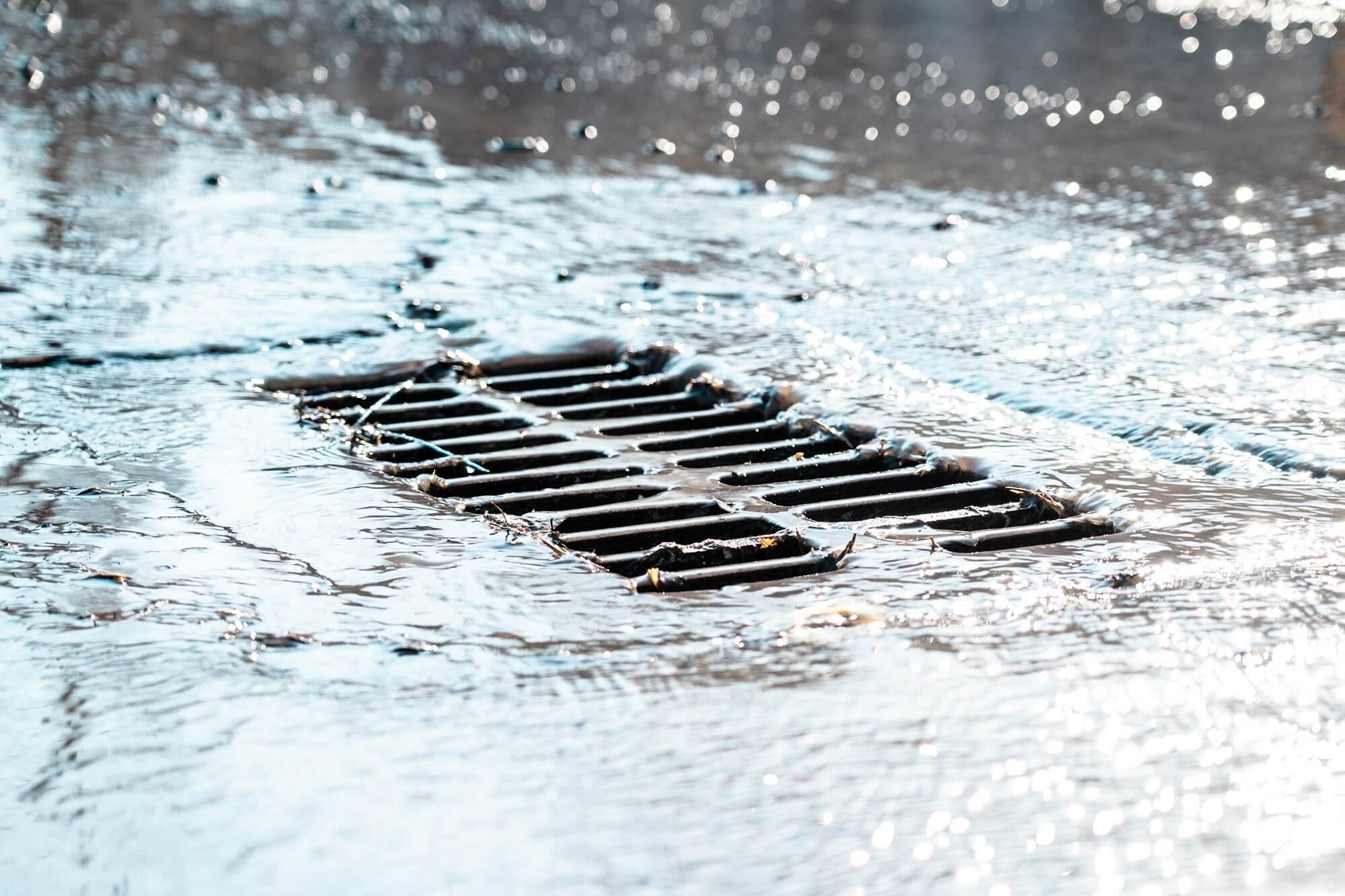
2. Roof leaks causing water damage
Roof leaks are a common issue for commercial buildings, especially those with flat roofing systems, as their structure can allow water to collect and not drain off properly. When water pools on the roof due to poor drainage or damaged roofing materials, it can seep into the building, causing structural damage, mould growth, and disruptions to business operations.
If left unaddressed, roof leaks can result in expensive repairs and potential liability issues for property managers.
Signs of a roof leak and water damage
- Discoloured or stained ceilings and walls.
- Peeling or bubbling paint or wallpaper.
- Dripping water or visible damp spots indoors.
- Mould or mildew growth in areas near the roof.
- Sagging ceiling panels or structural damage.
- Persistent musty odours within the building.
How to prevent roof leaks
- Regular roof inspections: Work with a professional commercial plumber to conduct bi-annual roof inspections to identify and repair cracks, loose flashing, or worn seals.
- Maintain roof gutters and downpipes: Ensure gutters and downpipes are free from blockages to allow proper water flow. Keep an eye out for fallen leaves around Autumn and Winter. If there is a significant gutter build-up, organise professional gutter cleaning to prevent water overflow, structural damage, and potential blockages in your drainage system.
- Address ponding water: Identify and work with a professional plumber to resolve areas where water accumulates on flat roofs.
- Invest in high-quality roofing materials: When replacing or repairing a roof, work with a provider that uses high-quality durable materials designed to withstand the West Australian climate.
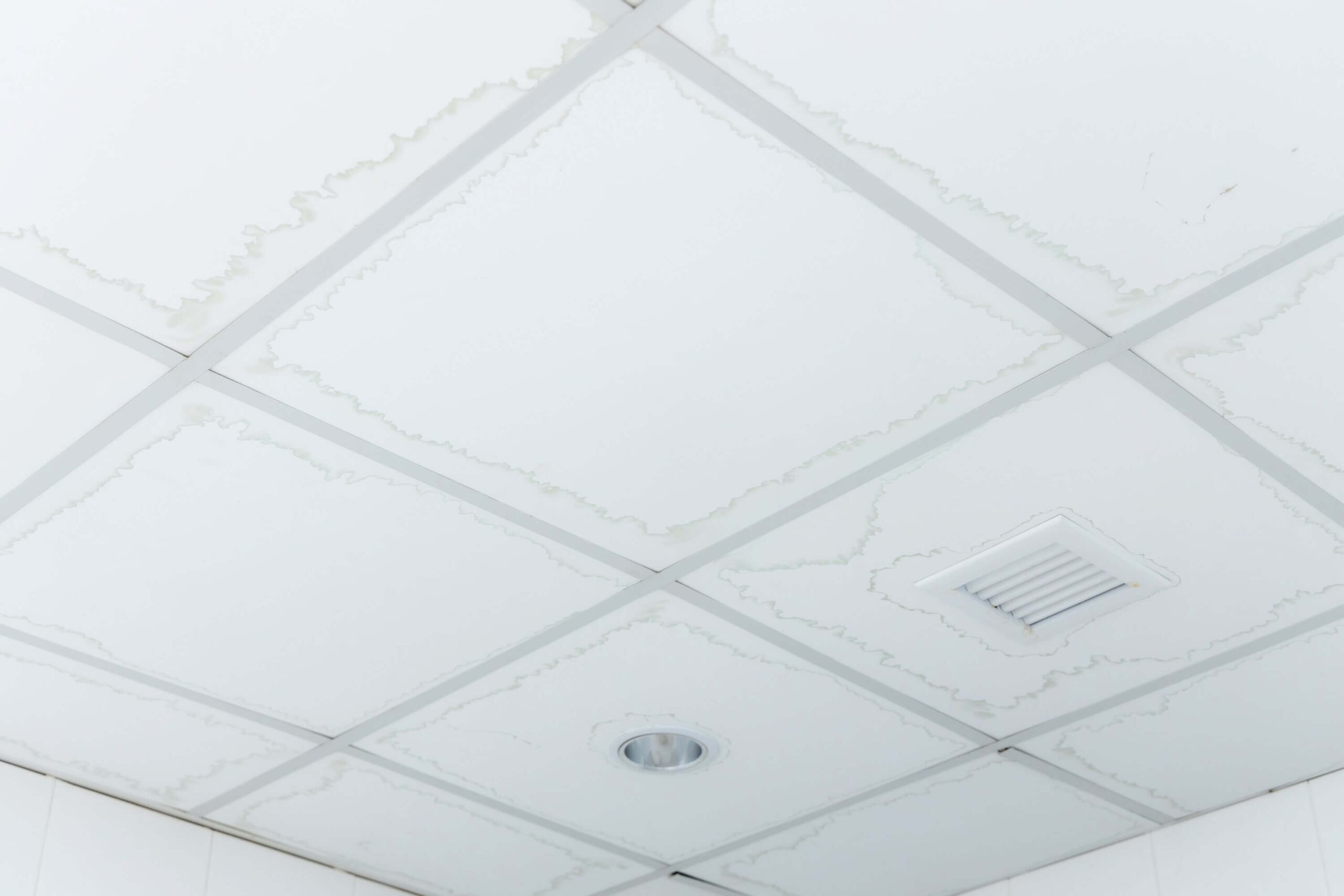
3. Sewer blockages and malfunctioning toilets
Sewer and toilet blockages can lead to unpleasant odours, unsanitary conditions, and inconvenience for both tenants and employees.
These issues are often caused by flushing inappropriate materials, such as wipes, sanitary products, or excess toilet paper, down the toilets. In some cases, tree root intrusion can be the cause of blocked sewer systems.
In more severe cases, a blockage in the main sewer line can lead to wastewater backups, posing serious health risks.
Signs of a sewer/toilet blockage
- Slow-draining toilets or water rising to the brim after flushing.
- Gurgling noises from drains or toilets.
- Persistent bad odours near restrooms or sewer lines.
- Frequent toilet overflows or backups.
- Water pooling around floor drains or outside sewer access points.
- Visible wastewater backup in toilets, sinks, or drains.
How to prevent sewer blockages
- Educate building users: Place clear signage in restrooms to discourage the disposal of unsuitable items. Ensure there are proper sanitary bins provided.
- Schedule regular sewer line inspections: Use professional plumbing services to inspect sewer lines with specialised equipment to detect and address blockages early. Inspections should be conducted at least once a year, with increased frequency for high-traffic commercial buildings to address wear and tear, and ensure proper function.
- Install high-capacity fixtures: In high-traffic areas, invest in commercial-grade toilets and plumbing systems designed to handle frequent use.
- Routine cleaning: Have a regular cleaning and maintenance schedule in place for restroom facilities to identify potential problems before they escalate. Keep a record of cleaning and maintenance of toilet facilities. This also helps identify the duration of issues, which can be helpful when you get a plumber out to conduct repairs.
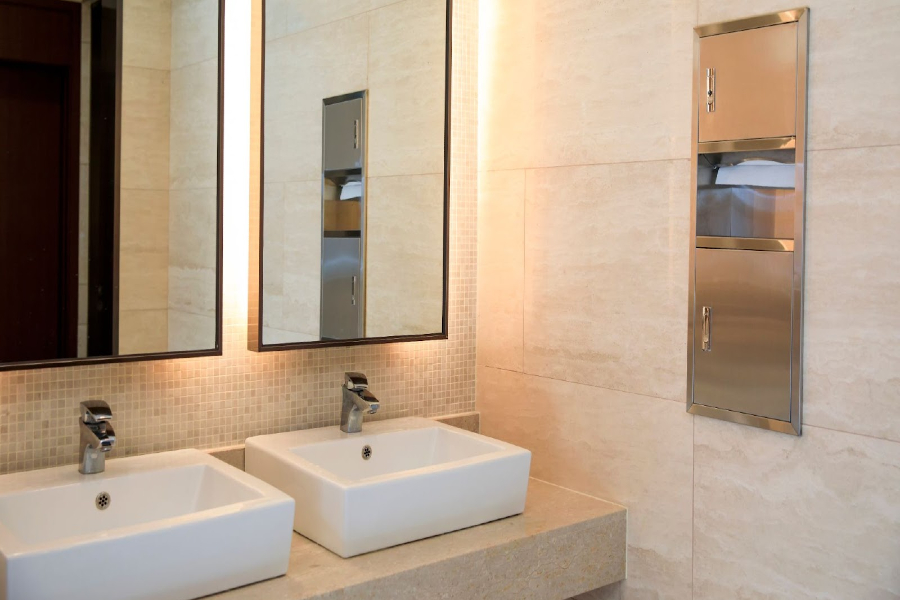
4. Clogged drains in commercial kitchens or break rooms
Commercial hospitality kitchens and break rooms are prone to clogged drains due to the accumulation of grease, food particles, and other waste materials, particularly as they are areas of high use.
When left untreated, these clogs can lead to unpleasant odours, slow drainage, and even complete blockages.
For restaurants or buildings with food service operations, these issues can disrupt daily activities and compromise hygiene standards.
Signs of a clogged kitchen drain
- Water draining slowly (or not at all) from the sink.
- Persistent unpleasant odours from the drain, often caused by food or grease build-up.
- Gurgling sounds when water flows through the drain.
- Water backing up into the sink when using other appliances, such as dishwashers.
- Visible debris, grease, or residue accumulating around the drain opening.
- Frequent need to use a plunger or other tools to clear blockages.
How to prevent clogged drains
- Install grease traps: Use grease traps to prevent fats, oils, and grease (FOG) from entering the drainage system.
- Educate staff: Train kitchen and break room users on proper waste disposal practices, such as scraping food into bins before washing dishes. Providing a documented set of these practices ensures they are consistently followed, helping to prevent larger issues from arising in the future.
- Use sink strainers: Install strainers to catch food debris before it enters the drains, encouraging staff to regularly empty these into bins.
- Schedule regular drain cleaning: Partner with a commercial plumber for routine blocked drain cleaning to prevent build-up and ensure smooth operations of your facility.
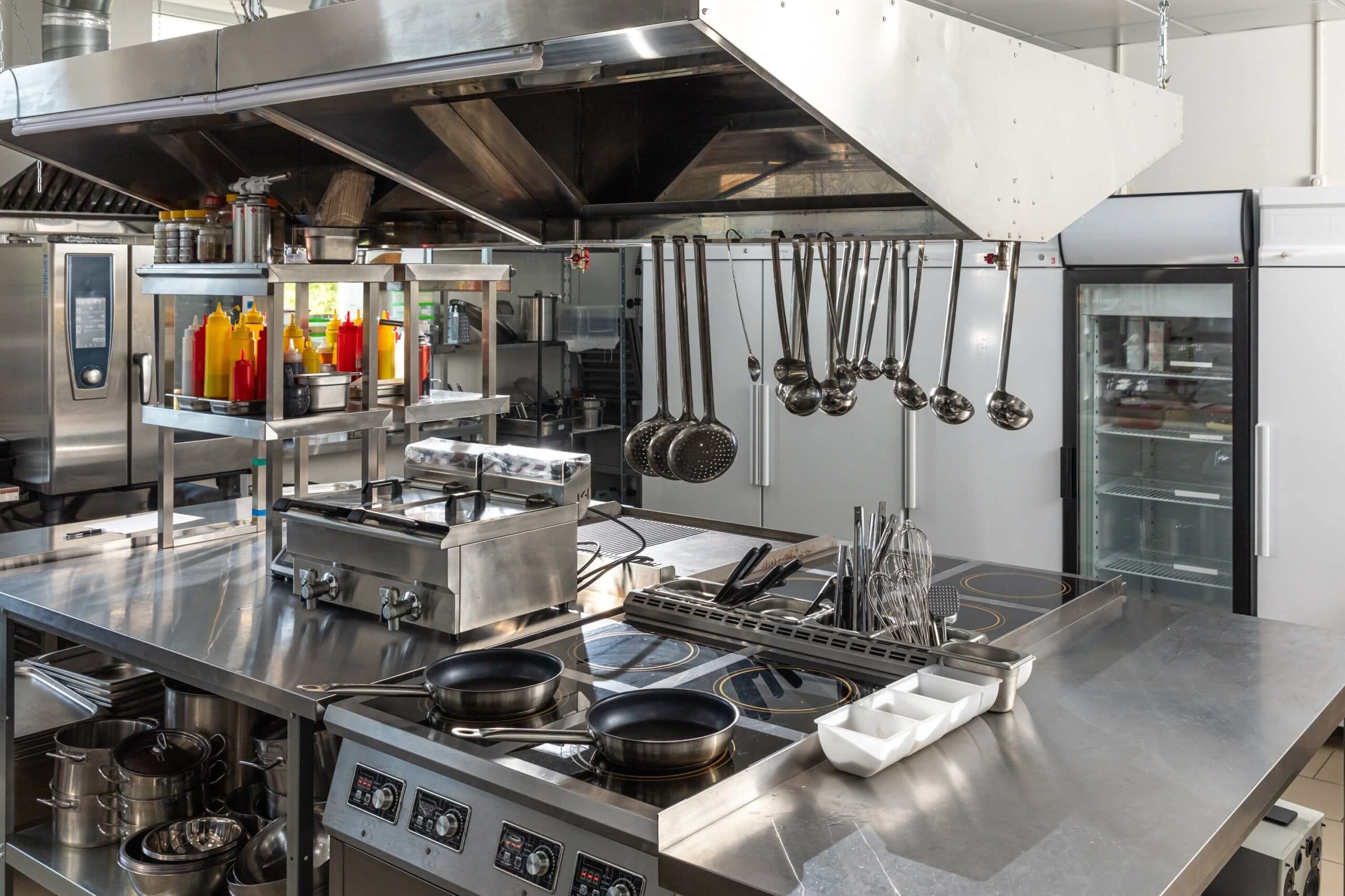
5. Leaking and burst pipes
Leaking or burst pipes are among the most serious commercial plumbing problems, often resulting in extensive water damage, higher utility bills, and disrupted operations.
The causes of leaking and burst pipes include ageing infrastructure, high water pressure, or extreme temperature changes. In commercial settings, the impact of such an issue can be far-reaching, and requires immediate action from a professional plumber to resolve.
Signs of a leaking or burst pipe
- Unexplained increase in water bills.
- Wet spots or puddles forming indoors or around the property without a clear source.
- Water stains or discoloured walls, ceilings, or floors.
- Persistent dripping sounds, even when taps are off.
- Sudden drops in water pressure throughout the building.
- Visible cracks or bulges in pipes, or water spraying from joints.
How to prevent leaking and burst pipes
- Monitor water pressure: Maintain optimal water pressure levels to avoid putting unnecessary stress on pipes.
- Replace aging pipes: Upgrade older pipes with durable materials such as copper or PEX (cross-linked polyethylene) to prevent leaks and bursts. Older pipes can be made from material such as clay which is prone to cracking and weakening over time, so investing in an upgrade is a good way to protect your plumbing system.
- Invest in leak detection systems: Consider installing systems that alert you to potential leaks before they become major issues. This is particularly useful if a leak or burst occurs overnight or out of office hours.
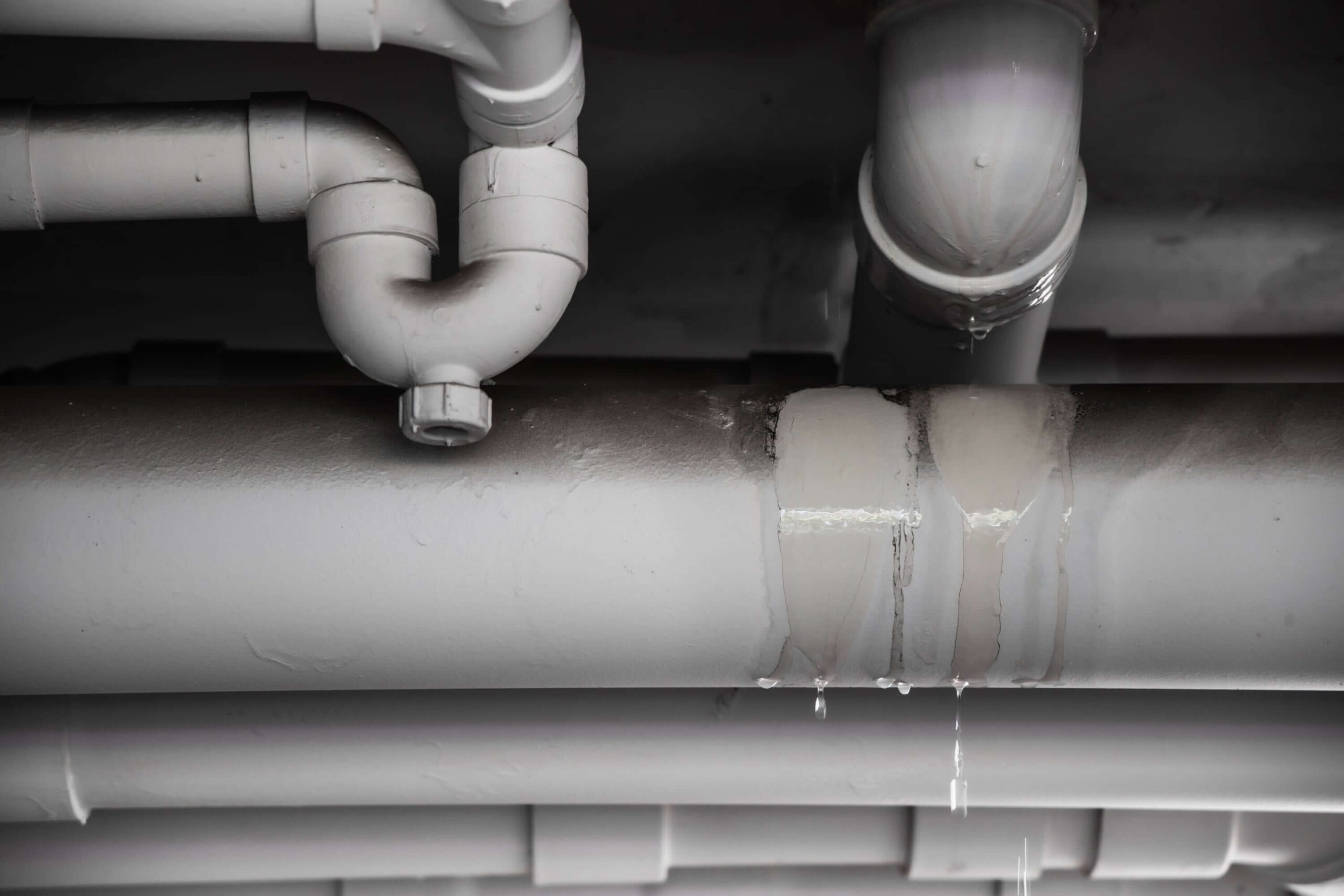
The moral of the story? Be proactive, not reactive
Proactive maintenance is the best way to prevent these common commercial plumbing problems. By addressing issues before they arise, you can reduce the downtime of your business or commercial property, avoid costly repairs, and ensure the safety and satisfaction of tenants and/or employees.
Whether it’s routine maintenance or addressing an emergency, partnering with a reliable commercial plumbing service is an investment in your property’s longevity and value.
At PBR Plumbing, we specialise in providing tailored plumbing maintenance and repair solutions for commercial properties. We value forming strong professional partnerships with commercial property managers across Perth so they know they can depend on us for all their plumbing and roofing maintenance and repair needs.
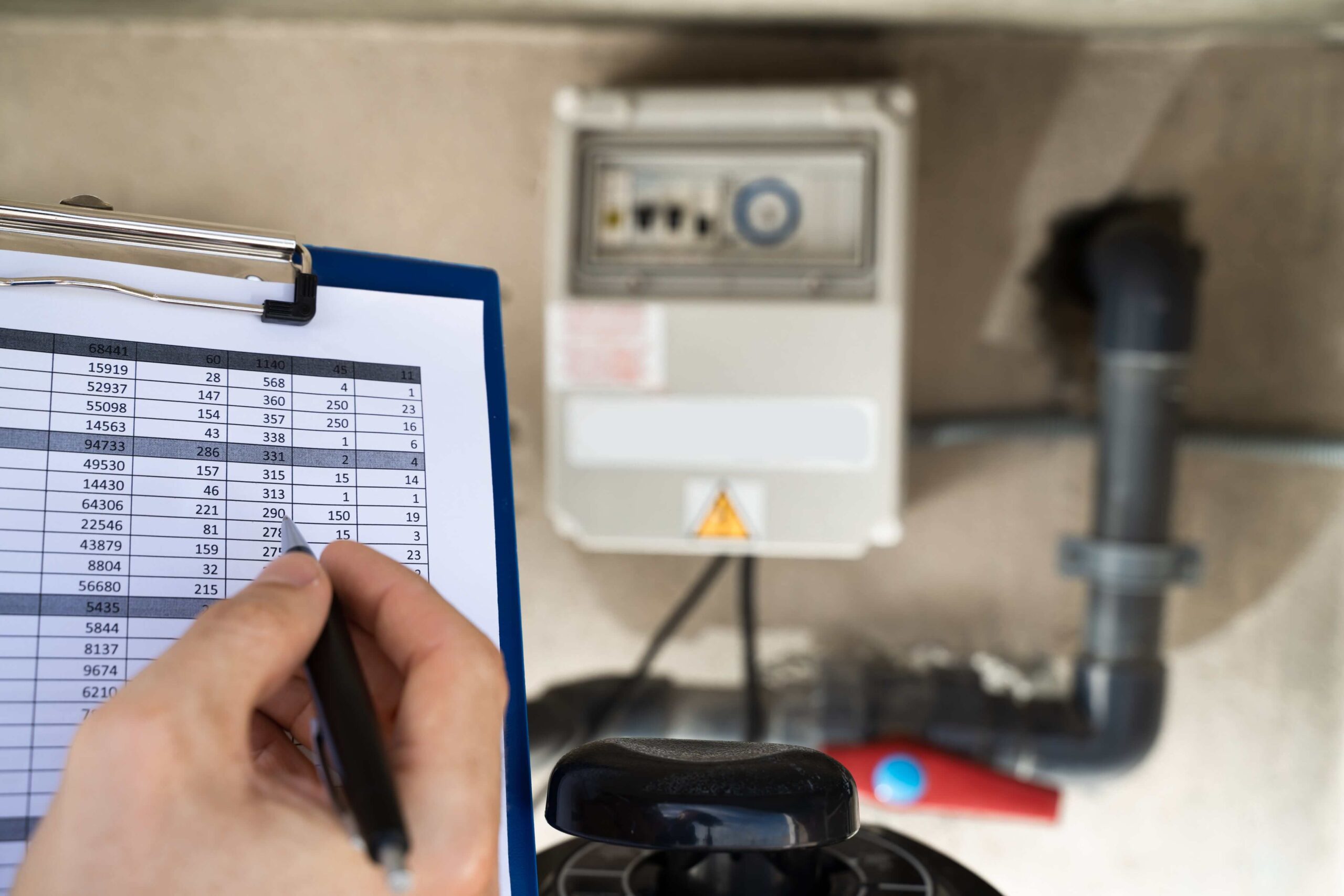
Our ultimate goal is to provide you with peace of mind through responsive, professional service, alleviating some of the stress associated with managing your commercial property.
From routine maintenance to emergency repairs, our expert team ensures your plumbing systems run efficiently year-round.
Contact us today to discuss how we can help protect your commercial building from plumbing issues.
FILL IN THE FORM BELOW AND OUR TEAM WILL
GET IN TOUCH.
